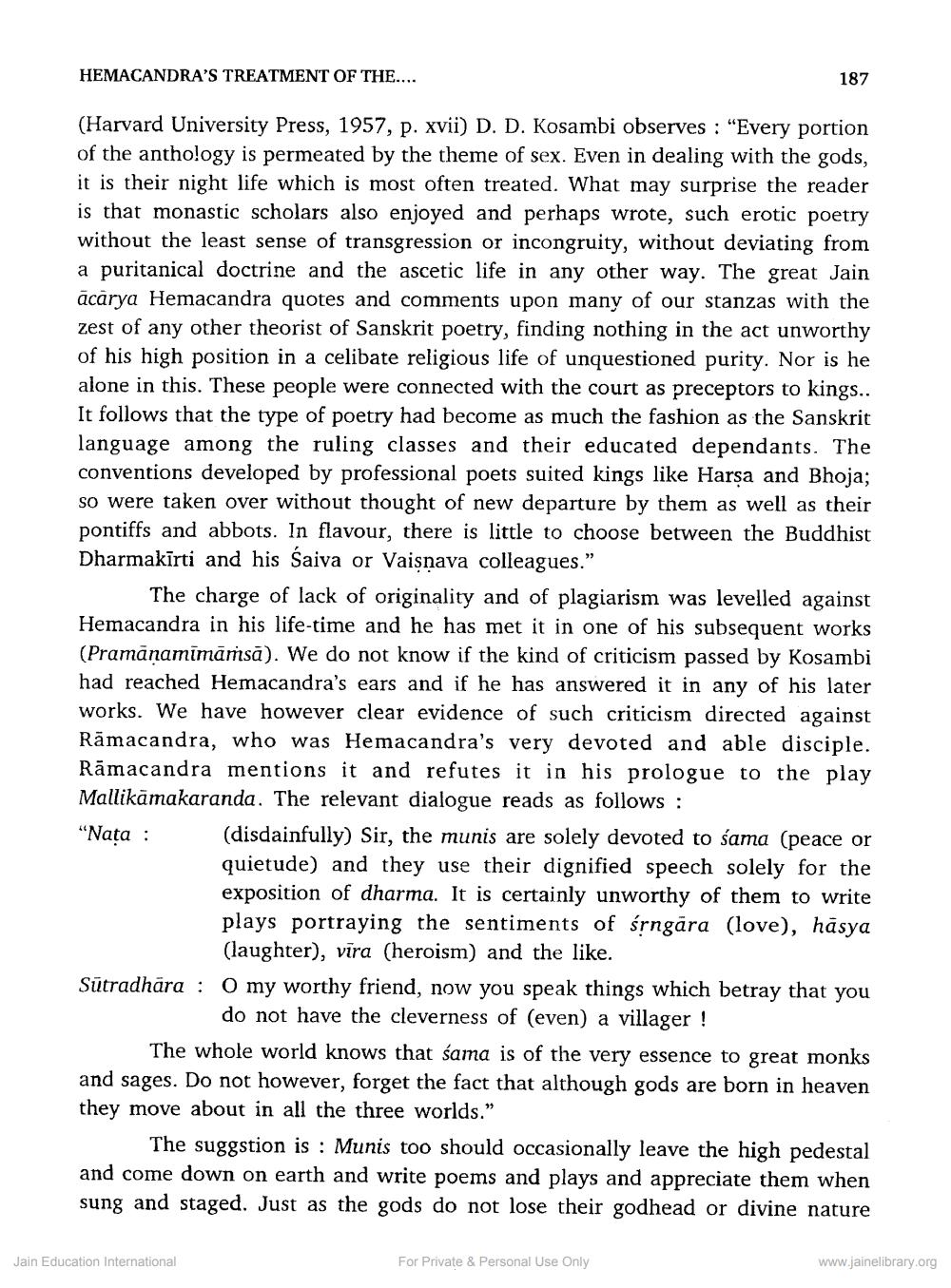________________ HEMACANDRA'S TREATMENT OF THE.... 187 (Harvard University Press, 1957, p. xvii) D. D. Kosambi observes : "Every portion of the anthology is permeated by the theme of sex. Even in dealing with the gods, it is their night life which is most often treated. What may surprise the reader is that monastic scholars also enjoyed and perhaps wrote, such erotic poetry without the least sense of transgression or incongruity, without deviating from a puritanical doctrine and the ascetic life in any other way. The great Jain acarya Hemacandra quotes and comments upon many of our stanzas with the zest of any other theorist of Sanskrit poetry, finding nothing in the act unworthy of his high position in a celibate religious life of unquestioned purity. Nor is he alone in this. These people were connected with the court as preceptors to kings.. It follows that the type of poetry had become as much the fashion as the Sanskrit language among the ruling classes and their educated dependants. The conventions developed by professional poets suited kings like Harsa and Bhoja; so were taken over without thought of new departure by them as well as their pontiffs and abbots. In flavour, there is little to choose between the Buddhist Dharmakirti and his Saiva or Vaisnava colleagues." The charge of lack of originality and of plagiarism was levelled against Hemacandra in his life-time and he has met it in one of his subsequent works (Pramanamimamsa). We do not know if the kind of criticism passed by Kosambi had reached Hemacandra's ears and if he has answered it in any of his later works. We have however clear evidence of such criticism directed against Ramacandra, who was Hemacandra's very devoted and able disciple. Ramacandra mentions it and refutes it in his prologue to the play Mallikamakaranda. The relevant dialogue reads as follows : "Nata : (disdainfully) Sir, the munis are solely devoted to sama (peace or quietude) and they use their dignified speech solely for the exposition of dharma. It is certainly unworthy of them to write plays portraying the sentiments of srngara (love), hasya (laughter), vira (heroism) and the like. Sutradhara : O my worthy friend, now you speak things which betray that you do not have the cleverness of (even) a villager ! The whole world knows that sama is of the very essence to great monks and sages. Do not however, forget the fact that although gods are born in heaven they move about in all the three worlds." The suggstion is : Munis too should occasionally leave the high pedestal and come down on earth and write poems and plays and appreciate them when sung and staged. Just as the gods do not lose their godhead or divine nature Jain Education International For Private & Personal Use Only www.jainelibrary.org




